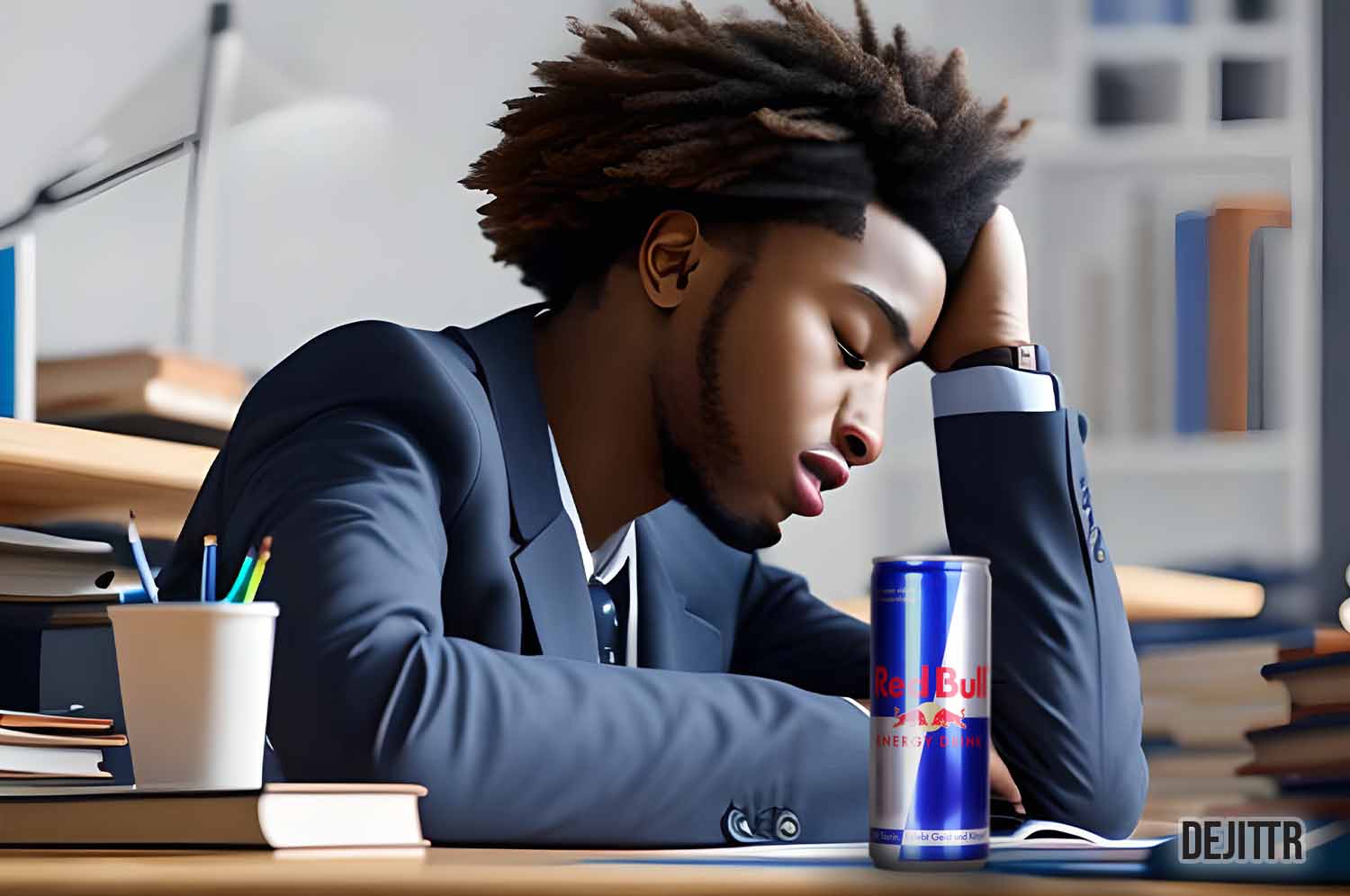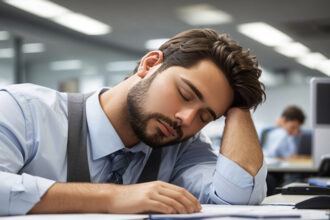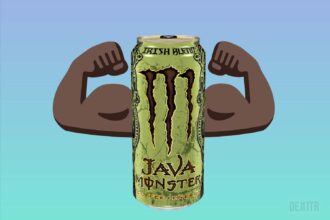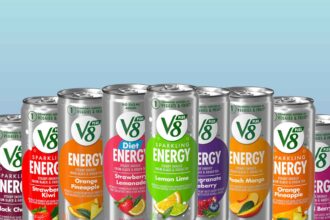Red Bull is a popular energy drink that is known for its ability to provide a quick pick-me-up for people who need to stay awake and alert. But just how long does Red Bull keep you awake?
Key Takeaways:
Typically, wakefulness induced by Red Bull can last from as little as 1 hour to a maximum of 6 hours after you drink it depending on your body’s metabolism. But usually, after an hour of drinking Red Bull, you may start to feel a sugar crash and the decreasing effects of caffeine.
If you’ve ever wondered about the caffeine content in Red Bull, how long it takes to kick in, and its effects on sleep, keep reading to learn all about it! Plus, we’ll compare Red Bull’s caffeine content to other energy drinks to see how it stacks up.
How Long Does Caffeine In A Red Bull Take To Kick In?
| Time After Drinking Red Bull | Effects on Body |
| 10 minutes | Caffeine begins to enter bloodstream, blood pressure, and heart rate increase |
| 15-45 minutes | Caffeine levels peak, increased alertness, and concentration, feelings of pleasure and reward |
| 30-50 minutes | Full caffeine absorption completes, and the liver starts to react by increasing sugar intake into the bloodstream |
| 1 hour | Effects start to wear off, and the time you typically experience a sugar crash |
| 5-6 hours | Half-life of caffeine, effects continue to decrease |
| 12 hours | Caffeine completely eliminated from the body |
Source: Medical News Today
Caffeine is the main ingredient in Red Bull that provides the energy boost people seek. The caffeine in Red Bull is absorbed into the bloodstream through the digestive system and then travels to the brain, where it blocks the neurotransmitter adenosine, which is responsible for making you feel tired.
The time it takes for the caffeine in Red Bull to take effect can vary from person to person. However, it typically takes 15-30 minutes for the caffeine to be absorbed into the bloodstream and start taking effect.
How Long Does The Caffeine In Red Bull Last?
Although it can take up to 12 hours for the body to get rid of caffeine from the system completely, the caffeine effects start to wear off just after 1 hour of consumption. In general, expect the energizing effects you feel from Red Bull to last up to 1-6 hours depending on how your body metabolizes the caffeine.
You need to be aware that even though Red Bull gives you energy at first, that feeling might not last very long. You might feel tired and slow again before you know it! When this happens, it’s called a “crash”.
The caffeine and sugar in the energy drink give you a quick boost, but then it drops off suddenly, which can leave you feeling really tired. I highly recommend you check out this guide to learn more about the crash resulting from an energy drink.
Additionally, the duration of the effects of caffeine can also depend on various factors such as age, weight, and metabolism. For instance, younger individuals tend to metabolize caffeine more quickly than older adults.
According to the data from a study, it takes 33% more time for senior age group people than younger adults to metabolize caffeine.
Similarly, individuals with a faster metabolism may experience a shorter duration of caffeine effects compared to those with a slower metabolism.
Moreover, the amount of caffeine present in Red Bull can also play a role in its duration of effects. While an 8.4 oz can of Red Bull contains around 80 mg of caffeine, larger cans or bottles may contain more caffeine, leading to longer-lasting effects.
Red Bull Caffeine Content vs. Other Energy Drinks
| Energy Drink | Caffeine Content (mg) | Serving Size (fl oz) |
| Red Bull | 80 | 8.4 |
| Monster Energy | 160 | 16 |
| Rockstar Energy | 160 | 16 |
| NOS Energy Drink | 160 | 16 |
| Full Throttle Energy Drink | 160 | 16 |
| Bang Energy Drink | 300 | 16 |
Red Bull contains 80mg of caffeine per 8.4 fl oz can, which is similar to the amount of caffeine found in a cup of coffee. However, other energy drinks can contain much higher levels of caffeine. For example, a 16 fl oz can of Monster Energy contains 160mg of caffeine, which is double the amount found in Red Bull.
It’s important to be aware of the caffeine content in energy drinks, as consuming too much caffeine can lead to negative side effects, such as jitteriness, anxiety, and heart palpitations.
Related Guide: Energy Drinks That Contain 300 mg of Caffeine
How Does Caffeine Affect Sleep?
Consuming caffeine, whether it’s from Red Bull or other sources, can interfere with sleep patterns. Caffeine blocks the production of adenosine, which is a natural sleep-inducing compound in the body. This can lead to difficulty falling asleep and staying asleep.
In addition to interfering with the body’s natural sleep-promoting process, caffeine can also reduce the overall quality of your sleep. Studies have shown that even if you take caffeine 6 hours before going to bed, you will still experience poor quality sleep.
Furthermore, caffeine can affect different people differently. Some people are more sensitive to caffeine than others, and some people may be able to consume caffeine later in the day without it affecting their sleep. However, it’s important to be mindful of how caffeine affects your own sleep and make adjustments accordingly.
It’s recommended that you avoid consuming caffeine in the hours leading up to bedtime, as the effects of caffeine can last for several hours and make it difficult to fall asleep. Additionally, it’s important to be mindful of your overall caffeine consumption throughout the day to avoid negative side effects.
Check out this guide to learn more about the right time for energy drink consumption.
In a nutshell, Red Bull can provide a quick energy boost when you need it most, but it’s important to be aware of its effects on the body. The caffeine in Red Bull typically takes around 15-30 minutes to take effect and can last for 3-6 hours.
However, consuming too much caffeine can lead to negative side effects, and it’s important to be mindful of your overall caffeine consumption and how it can affect sleep patterns.













